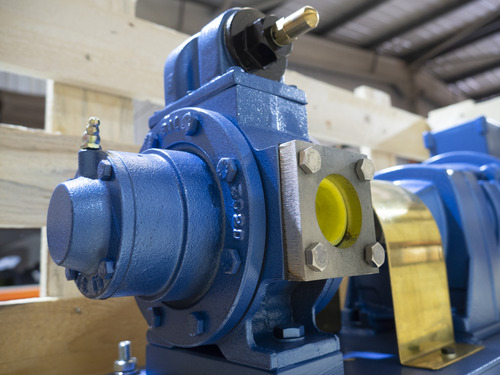 Add My Company
Add My Company
Methanol Turbine Feed Pump– Case Study

In our latest case study, we’re going to be talking about alternative fuels and in particular, methanol. Is it the renewable, sustainable fuel of the future but do you need special pumps to transfer it?
Compared to fossil fuels, renewable methanol can reduce carbon emissions by 65% to 95% depending on the feedstock and conversion process used. That’s one of the highest potential reductions of any fuel currently being developed to replace petrol, diesel, coal and methane.
Methanol is a multi-purpose fuel that can be used on its own, blended with other fuels or used for producing fuel additives which improve engine performance. It can also be used in fuel cells, which convert energy to electricity.
As it is a high-octane fuel, several types of internal combustion engine can use methanol: such as to drive passenger cars or light- and heavy-duty vehicles, as well as being used in ships. Fuel mixtures with a low level of methanol need no adjustments to the existing fuel infrastructure – the equipment and systems needed to produce, distribute, store and dispense fuels.
The advantages of methanol
Methanol has several advantages as a carbon-neutral fuel. It is sustainable as it can be produced using only renewable resources, such as sun, wind and biomass, along with carbon captured from power plants or taken directly from the air.
Although the majority of methanol used today is still produced conventionally from natural gas, it has enormous potential to become the go-to carbon-neutral resource for the maritime industry.
The infrastructure and engine technology are already in place. The challenge now is to increase its production from green hydrogen and carbon capturing. While the production costs will initially be higher than other alternative fuels, such as synthetic natural gas, its handling costs will be lower.
Methanol is not to be confused with Ethanol, which although they look and sound similar, are used in completely different applications. Methanol is usually synthetically processed and is used as an additive to create other chemicals. Ethanol is typically produced through food crop fermentation and is the main ingredient in alcoholic beverages. As such, ethanol pumps can require a different specification with a pump of hygienic design.
Supplying a methanol turbine feed pump
North Ridge was contacted by a gas turbine manufacturer who were looking for a proven methanol feed pump to transfer liquid methanol at range of temperatures from -20°C to - 40ׄ°C.
The flow rate needed be around 30L/min at pressures of up to 3 bar and was being used to test a newly developed turbines performance. They would vary the pump flow utilising both 50hz and 60hz frequencies to increase flow but required the same consistent pressure to ensure that turbine performance was maintained.
For this particular project, we supplied our heavy duty vane pump the NRBAL2R which was long-coupled in cast iron and mounted on a baseplate that was connected to an ATEX 0.75Kw motor.
The NRBAL2R series of vane pumps is a high performance model commonly used in applications where pumps are running continuously; such as in tank farms, refineries, or oil processors tansfering a variety of liquids which can be corrosive, flammable and low lubricating.
Consequently, the NRBAL2R pump is built with double mechanical seals to ensure almost zero chance of leakage of volatile fluids. This design also promotes a longer service life without affecting the units overall size. Safe fluid handling is also ensured through the presence of the integrated relief valve which is mounted on the pump head and prevents the pump being damaged from excess pressure.
This model is also equipped with a double set of bearings ensuring rotational loads are evenly distributed. The pump was operated by a geared motor running at only 470rpm further ensuring any wear was kept to a minimum.
-23092709515027118.jpg)
Rotary Vane Pump Benefits
Rotary vane pumps can bring significant benefits in applications where high performance and reliability are required with minimal loss of downtime. They are easy to maintain and provide consistent flow across varying viscosities at different pressures.
Our range of NR-BAL rotary vane pumps are positive displacement volumetric pumps with a maximum working viscosity of 10,000 cSt. This means they can easily handle the vast majority of low to medium viscosity fluids without loss of performance.
Sliding vane pumps are the perfect choice for applications using alternative or future fuels such as methanol. Their efficiency, reliability and heavy-duty design our rotary sliding vane pumps are perfect for volatile, flammable liquids used across a variety of industries. https://www.northridgepumps.com/article-374_alternative-fuel-handling-hvo-gtl-and-synthetic-fuels
If you’re looking for proven pumps for methanol transfer or any kind of alternative fuel handling in a variety of applications, speak to North Ridge Pumps to see how we can help.
For more information on Methanol Turbine Feed Pump– Case Study talk to North Ridge Pumps Ltd
